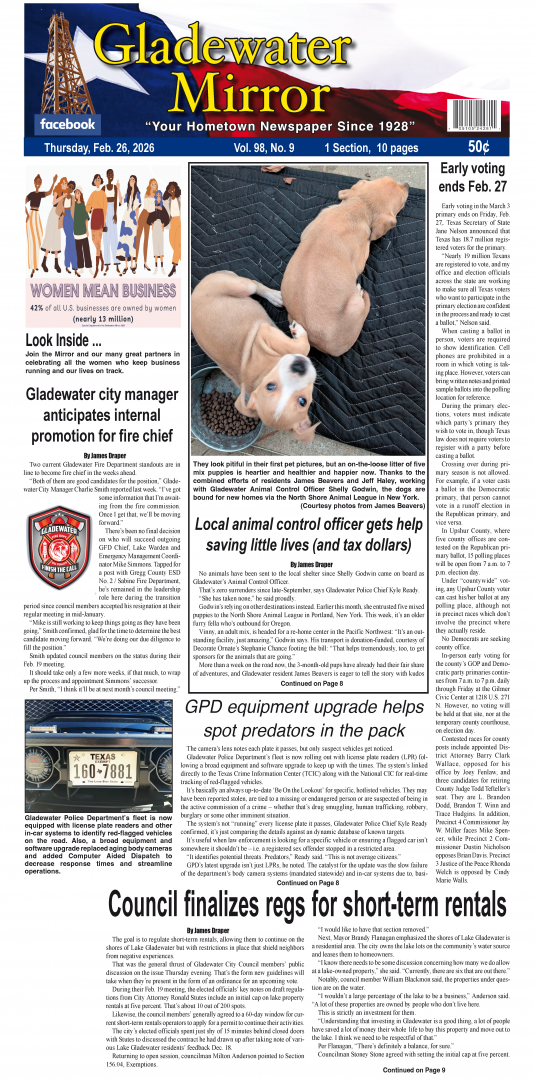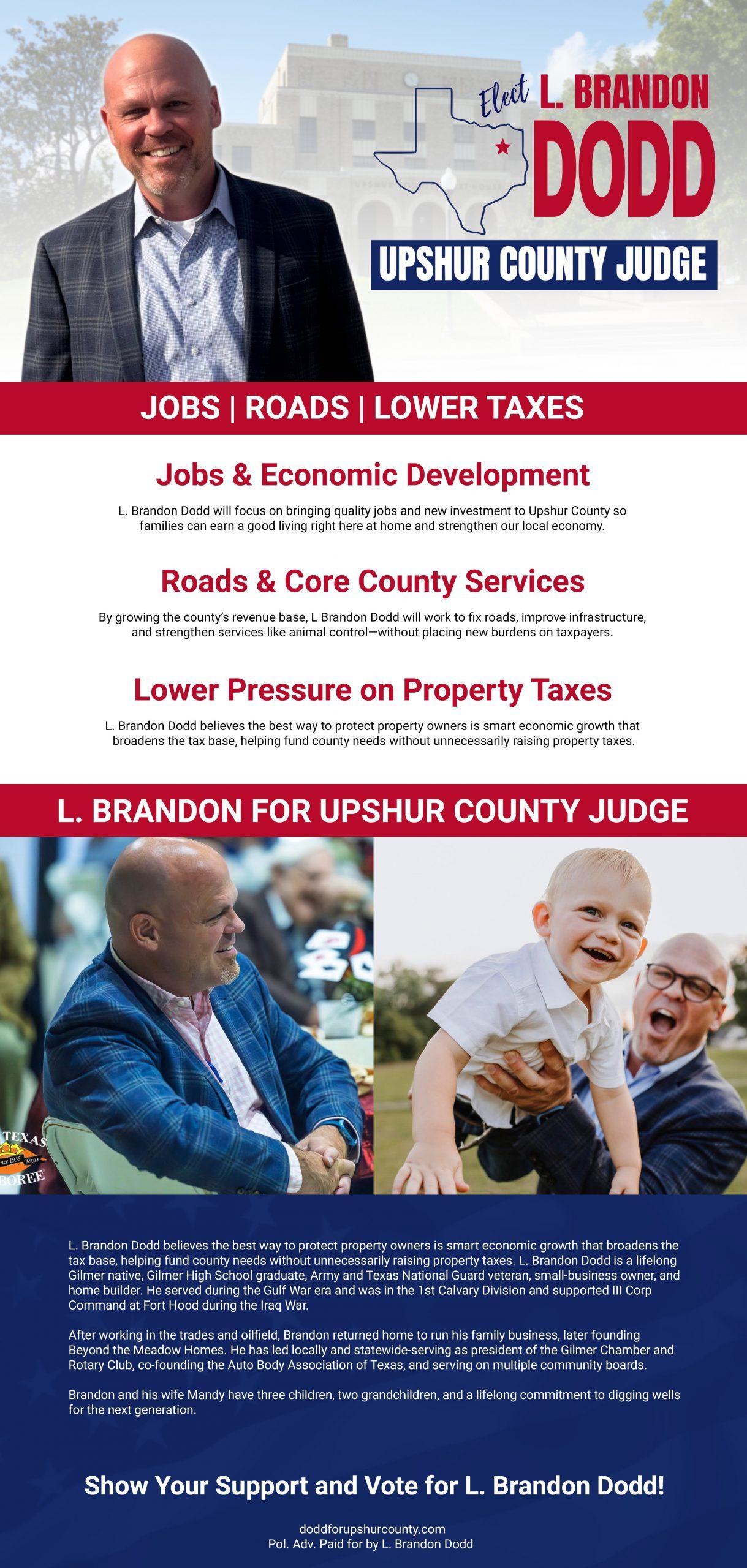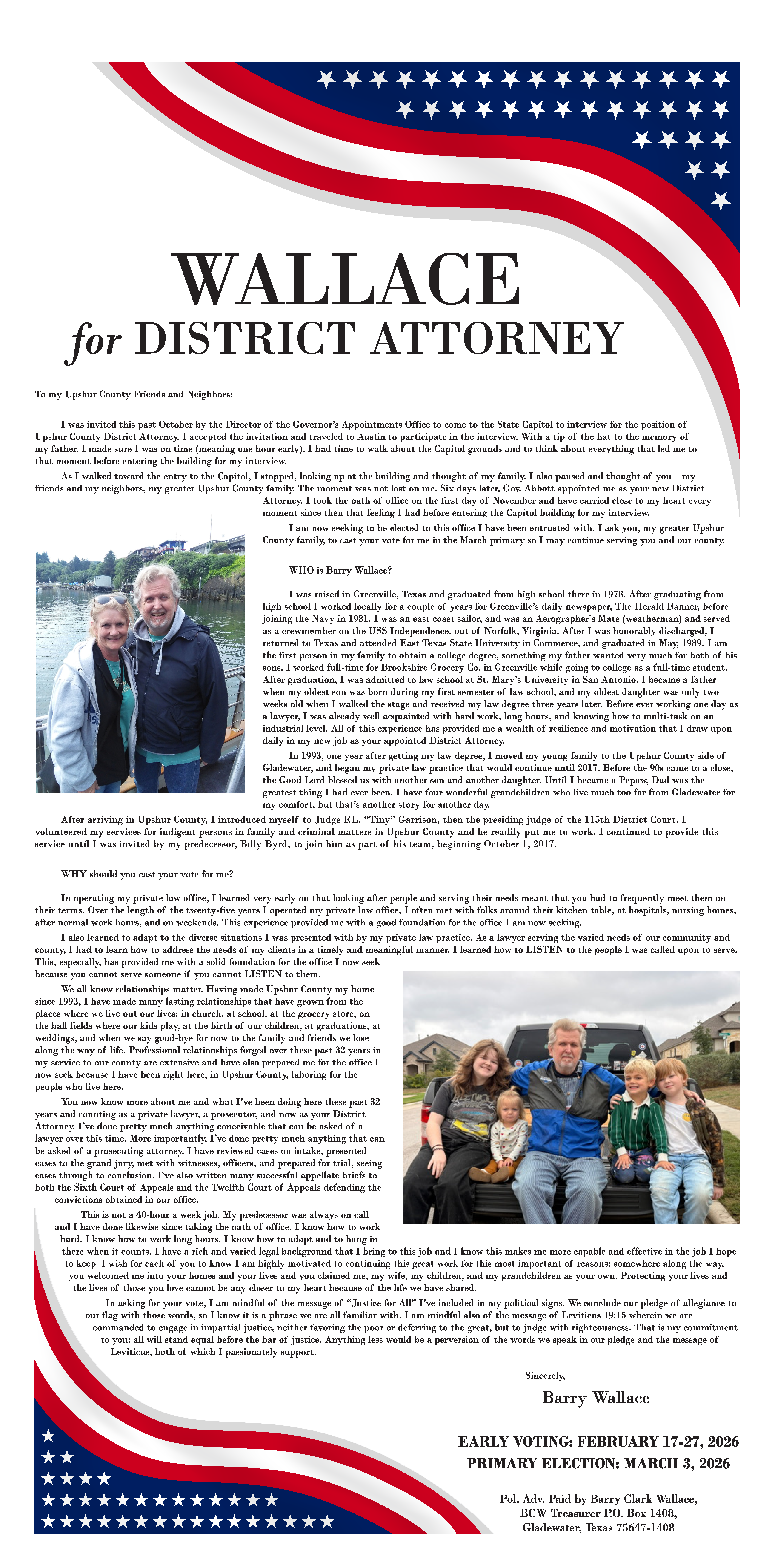By James Draper
The first draft of the City of Gladewater’s proposed $7.7 million budget for Fiscal Year 2023-2024 initially cuts about 10 cents off the tax rate – with a broad increase in appraised values, though, City Hall will still pull in about $50,000 more this year.
Even cutting a dime off the rate, “That does not necessarily mean that people’s taxes are going down because the values went up,” Mayor Scott Owens repeated Monday evening during the city council’s second budget workshop of the year. Meanwhile, “We’ve got some changes with the legislature coming with the increase in the Homestead Exemption and the Over-65 exemption that may shift some of that.
“All in all, people’s taxes should remain pretty close to the same.”
If the 10-cent decrease remains in the proposed tax rate – $0.626978 per $100 valuation – City Hall will still take in a bit less than 2 percent more ($50,260) in property tax revenues on top of the budget for the current FY23.
Interim City Manager Charlie Smith, his department heads and staffers took council members on a page-by-page walkthrough of ‘Version 1’ of the coming year’s budget. They lingered on salary increases for city employees, on streamlined procedures for Public Works and on a looming, as-yet-undetermined increase in fees for Fund 2, which covers water, sewer and other areas.
Still early in the budget process, it was a fairly standard annual discussion with few fireworks to speak of beyond a brief back-and-forth on employee compensation and retention – year after year, Gladewater’s top police and fire chiefs request additional funds to make their departments’ salaries more competitive against similar communities. There’s been progress over time, but it’s an ongoing conversation as elected officials and City Hall leaders balance one need against another.
“We’ve got to do retention of our employees. We all know that,” Smith reminded council members. Years of good decision-making by the department heads and council members have led to some improvements, he added, but there’s still a lot of ground to cover: “Unless we take that step forward to retain these people, we’re going to be stepping stone, and that step’s getting pretty small.
“I’m not saying we have to do all that at once, but we’ve got to do something.”
Glad for added overtime pay, Fire Chief Mike Simmons aims to work step increases into his department’s compensation, incentivizing firefighters to stay.
“We can’t underpay people and expect them to overperform and stay here and be happy,” he said. “It feels like we’re just spinning our wheels in the mud.”
It’s an important consideration for Owens, but it’s also one of many.
“I understand where y’all are coming from, but salaries aren’t the only thing we have to worry about in this budget,” he said. “If we don’t do anything about streets…”
It’s a problem all the city’s leaders have inherited, Police Chief Gordon Freeman agreed.
“We’ve all seen worse days for Gladewater, but now we’re on an upswing. I just kind of want to keep some momentum,” he said. “I don’t want to have to fight to keep employees.”
The current draft budget includes a 5 percent increase to the city’s salary pool to be allocated to various employees.
“It can’t be all about one department,” City Clerk Judy Van Houten said, “it’s got to be about the whole city.”
City Treasurer Meghan Davis said the issue is about more than pay: “It’s about the work morale and attitudes in each department.”
Stepping into the conversation, council member Brandy Flanagan thanked Freeman for developing a matrix that shows the pay disparity between Gladewater and other similar operations in the area. For example, patrol officers ($40,950) in the community are the lowest paid across the board from Upshur County to Hawkins, Carthage, Hallsville, Gilmer, Rusk County, Gregg County, White Oak and Whitehouse. Sergeants and Investigators make more than their counterparts in Upshur County, less than all their other peers.
That said, whatever the department they work in at the City of Gladewater, “I don’t think anybody’s overpaid,” Flanagan said. “If we just keep going with across the board increases and we don’t fill in those gaps, we’re just going to keep having that discrepancy.”








